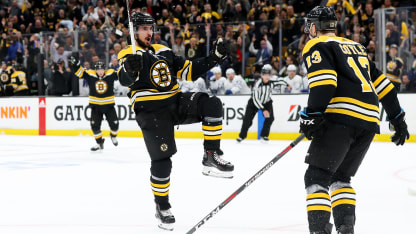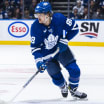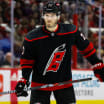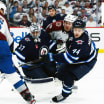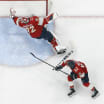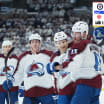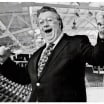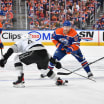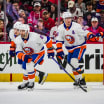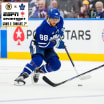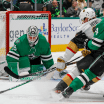In the playoffs, however, Coyle has been a difference-maker. Scoring on 21.4 percent of his shots has helped, but the puck has been moving the right way with Coyle on the ice, with the Bruins getting 53.02 percent of 5-on-5 shot attempts (2.43 relative SAT percentage), and his 2.75 points per 60 minutes at 5-on-5 ranks fifth on the Bruins in the postseason.
Boston's other big acquisition before the NHL Trade Deadline, forward Marcus Johansson, added more skill and depth. Johansson was injured in his fourth game after being acquired in a trade with the New Jersey Devils on Feb. 25 and had three points (one goals, two assists) in 10 regular-season games. Though the Bruins did control 51.87 percent of 5-on-5 shot attempts with Johansson on the ice in those 10 games, Boston dramatically was worse in that respect with him on the ice as he had a minus-5.32 relative SAT percentage.
In the postseason, though, the Bruins have controlled 51.14 percent of shot attempts with Johansson on the ice at 5-on-5 in the playoffs, and Johansson has picked up his point production, generating 2.70 points per 60 minutes.
By way of comparison, there were 61 forwards in the League this season that averaged at least 2.70 points per 60 minutes of 5-on-5 play while playing at least 10 games. That's fewer than two per team, and the Bruins have five players scoring at that rate through the first three rounds of the playoffs.
Coyle and Johansson are two of four Bruins -- forwards Jake DeBrusk and Danton Heinen are the others -- to have recorded an average shot length closer than 29 feet in the playoffs, and that can serve as a proxy for the shot quality they have been able to generate during the postseason.
Perhaps the biggest surprise among the Bruins playoff contributors is forward David Backes, who has had to battle to keep a spot in the lineup. Backes is averaging 9:46 of ice time per game, the lowest on the Bruins, but has been productive in his limited role. Backes' five points (two goals, three assists) in 11 postseason games translates to 2.79 points per 60 minutes, fourth on the Bruins.
